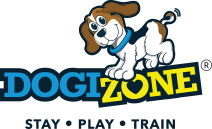Coughing Etiology
As the “season of the cough” is upon us, we thought it would be wise to share some medical insight into the etiology of “common colds & coughs.” Typically at this time of year, many dogs (just like their human counterparts) develop mild, upper respiratory infections (URI’s) manifested by a dry, non-productive cough that is usually self-limiting. Unfortunately, no vaccination can provide 100% immunity from any infectious disease (for example, people vaccinated for the flu are still susceptible to catching it). What vaccines do provide is some level of protection against acquiring the given disease, but in medicine, as in life, there are never any guarantees! By way of another example, “kennel cough” in dogs can be caused by over a hundred different strains of the bacterium and the best vaccines available only provide protection against a dozen or so of the strains (the most common & virulent ones, of course). As dogs are very social creatures, this leads to relatively rapid of transmission of “colds & coughs” between them.
Unfortunately, most dogs are asymptomatic during the phase when they are shedding virus and able to transmit these diseases to other pets and only develop clinical symptoms such as coughing and nasal discharge after the shedding phase, making effective identification & isolation very difficult. Finally, be aware that “Kennel cough” is a drastically over-diagnosed condition by most veterinarians for any animal that presents with coughing. In reality, most of these cases are what is known as “infectious teracheobronchitis”, an umbrella category for URI’s caused by a myriad of contagious viruses and bacteria, most of which are self-limiting and do not lead to serious complications or debilitation.
Some precautions pet owners can take in the current season to help prevent infection with the many viruses and bacteria that cause “coughs & colds” are:
Walk dogs briefly in cold weather for the purposes of elimination only (exercise them indoors when possible- cold weather decreases the airway’s ability to clear microorganisms & bring them up in phlegm)
Minimize contact with other dogs in the neighborhood, at dog parks, pet stores and groomers
Do not allow your pets to drink from communal water dishes at dog parks and pet stores that supply them
Observe your pets for changes in breathing depth, rate or for any coughing and seek veterinary care if observed
Be sure all your pets are fully vaccinated for “Kennel cough”, Parainfluenza (in “Distemper” vaccines) and canine influenza virus
If pets have been at Greenbriar Veterinary Hospital, Day Camp, Day Boarding or regular Boarding, grooming and or Canine Obedience Unlimited within the last 2 weeks and have developed a cough, we will provide a comprehensive physical examination and dispense 10 days’ worth of Doxycycline antibiotic therapy (as indicated) at no cost to owners.
For any other questions related to this matter please call 240-793-5787
